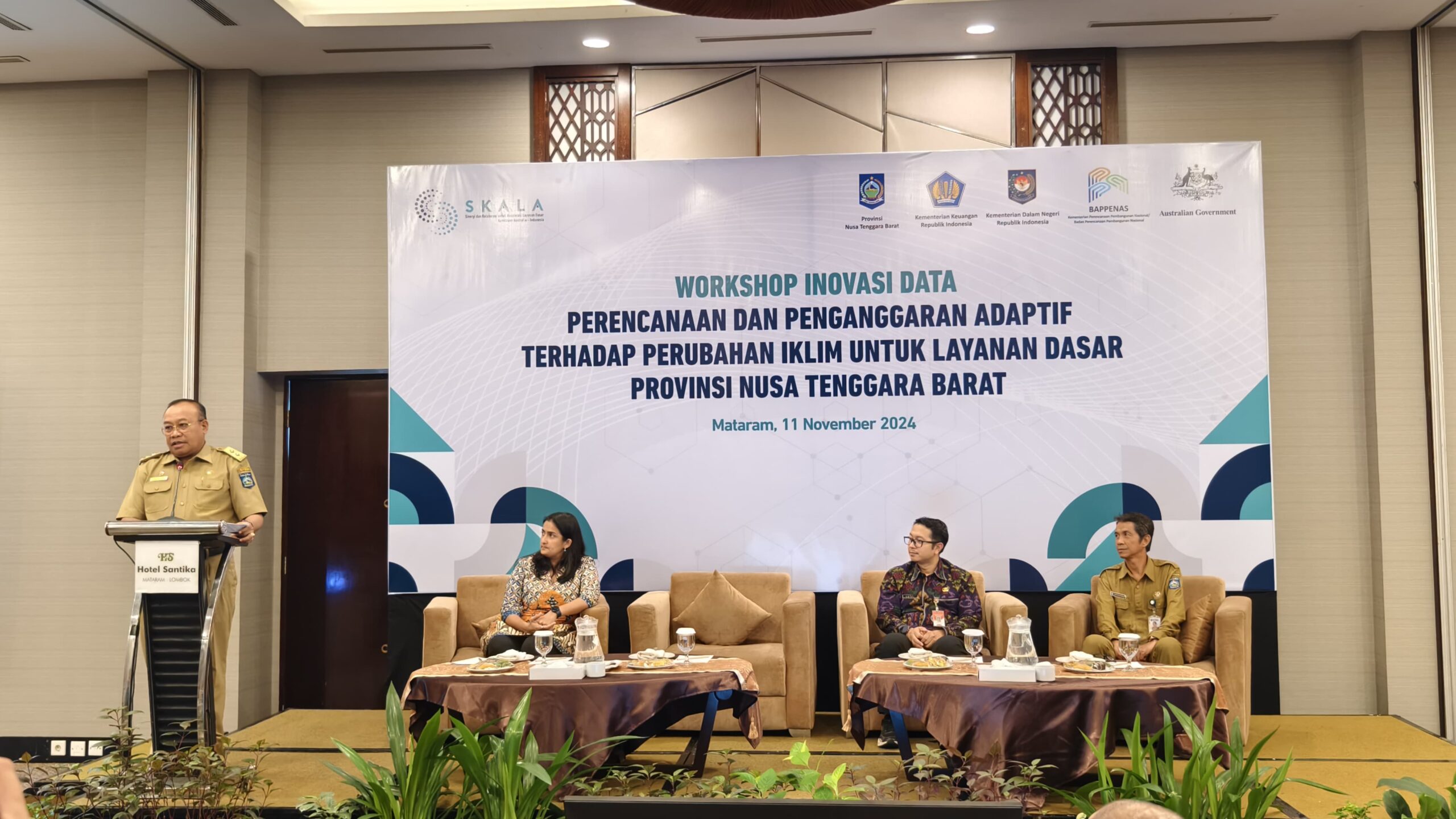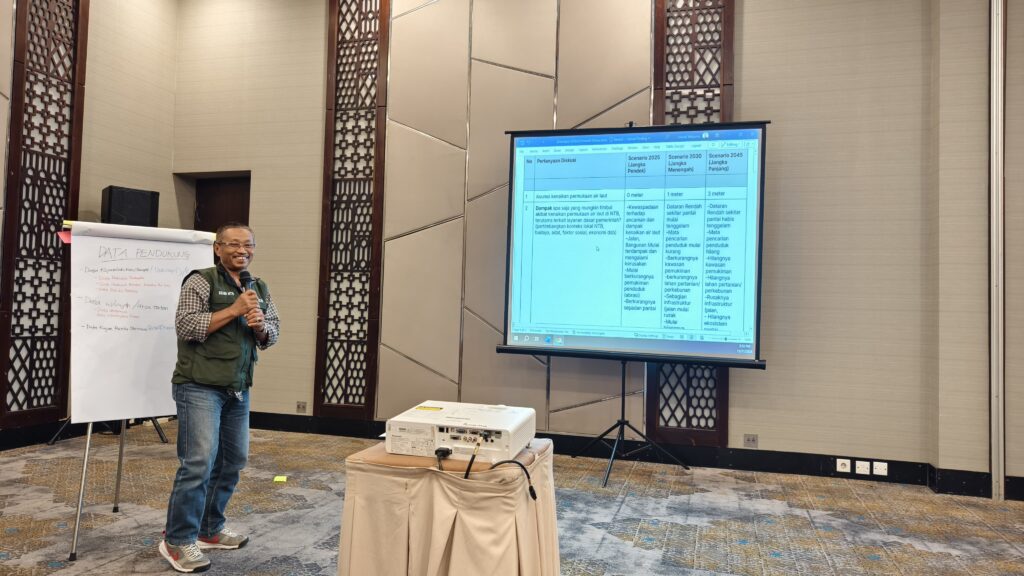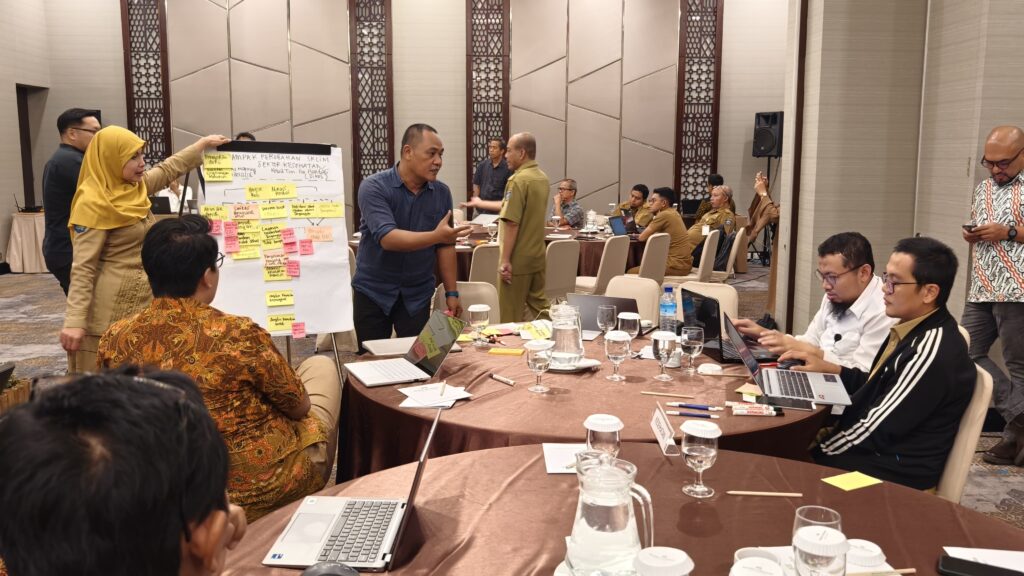West Nusa Tenggara Driving Data Innovation for Climate Resilient Basic Services

A 2024 United Nations Report states that sea levels have been rising faster since the 20th century compared to previous centuries. In Indonesia, the annual rise is between 0.8 and 1.2 centimetres, according to the Meteorology, Climatology and Geophysics Agency. These figures are not just statistics, but a reality for coastal areas such as West Nusa Tenggara (Nusa Tenggara Barat/NTB), home to 5.56 million people, 42% of whom live on the coast. Rising sea levels signal the urgent need for action and adaptation to a changing climate.
Indonesia demonstrated its commitment to climate action by ratifying the Paris Agreement in 2016 and submitting its Enhanced Nationally Determined Contribution (ENDC). The climate resilience agenda is outlined in the National Medium-Term Development Plan 2020–2024 and elaborated in the National Action Plan for Climate Change Adaptation. This commitment is also evident in NTB through the Governor’s Regulation No. 54 of 2019 on the Local Action Plan for Climate Change Adaptation.
The Threat of Climate Change to Basic Services
The urgency for action is clear in NTB, where flood vulnerability has been documented over the years. According to the National Disaster Risk Assessment 2022-2026 (National Disaster Management Agency), three districts in NTB face high flood risk, while five districts and two cities are at moderate risk. Floods were the most frequent hydrometeorological disaster from 2009 to 2019, with 249 incidents causing major damage to infrastructure, loss of life and livelihoods.
Climate projections indicate that these risks will increase, with more intense rainfall and rising sea levels. Without effective adaptation measures, the costs could be enormous. Between 2000 and 2016, floods caused an average annual economic loss of IDR4.64 trillion, according to the Ministry of Finance. Although the specific economic losses for NTB have not been calculated, flooding will disrupt basic services such as health care and education. In NTB, where the doctor-to-population ratio is already low due to a shortage of medical staff, flooding will further strain disaster response systems, placing vulnerable groups such as pregnant women and children at greater risk. It will also disrupt transport networks and schooling, exacerbating inequalities in access to essential services.
Leveraging Data for Adaptation Solutions
To address this challenge, NTB held a workshop on “Data Innovation: Planning and Budgeting for Climate-Adaptive Basic Services” on 11 November 2024, in Mataram. The event was a collaboration between the Ministry of Home Affairs, UN Global Pulse and SKALA to explore how data innovation can strengthen climate resilience. Speakers included Head of the Subdivision for Program and Budget Preparation, Directorate General of Regional Development, Ministry of Home Affairs Lutfi Firmansyah, Secretary of NTB Bappeda Mahjulan, and UN Global Pulse Data Innovation and Policy Lead Faizal Thamrin.
The workshop combined policy presentations with interactive discussions. Participants mapped risks and opportunities in the health, education, and social sectors, including the stakeholders who need to be involved. They envisioned the potential impacts of different adaptation scenarios for the short term (2025), medium term (2030), and long term (2045). Participants also gained insights into combining conventional data sources, such as survey results, with non-conventional sources, such as satellite imagery. This approach demonstrated how data innovation can be used to identify risks and inform climate change adaptation strategies.
Feedback from the 40 participants was positive. A total of 82% agreed that data innovations should be implemented to support climate risk responsive planning, while 67% highlighted the importance of incentives to sustain data collection and analysis efforts.
Participants also highlighted challenges related to limited local fiscal capacity. This reflects the need to revise Law No. 23 of 2014 on Local Government, particularly those related to authority and finances.
“This workshop provided insights into governance that could inform the current revision process of the Local Government Law,” said Lutfi Firmansyah.
A Vision for Climate Resilient Future
This workshop is an important step for NTB in using data innovation to strengthen climate resilience across its service delivery systems. This requires immediate action, including improving early warning systems through collaboration. For example, disaster data can be used to optimise the allocation of logistics and health workers to affected areas, which enables rapid and effective responses.
Policy support and budget allocations that prioritise climate adaptation initiatives are crucial, with data as the foundation for planning.
SKALA Director of Knowledge Management and Partnerships, Megha Kapoor, emphasised, “To ensure the continuity of basic services in the face of climate change, we need innovative solutions based on accurate, up-to-date and integrated data.”








